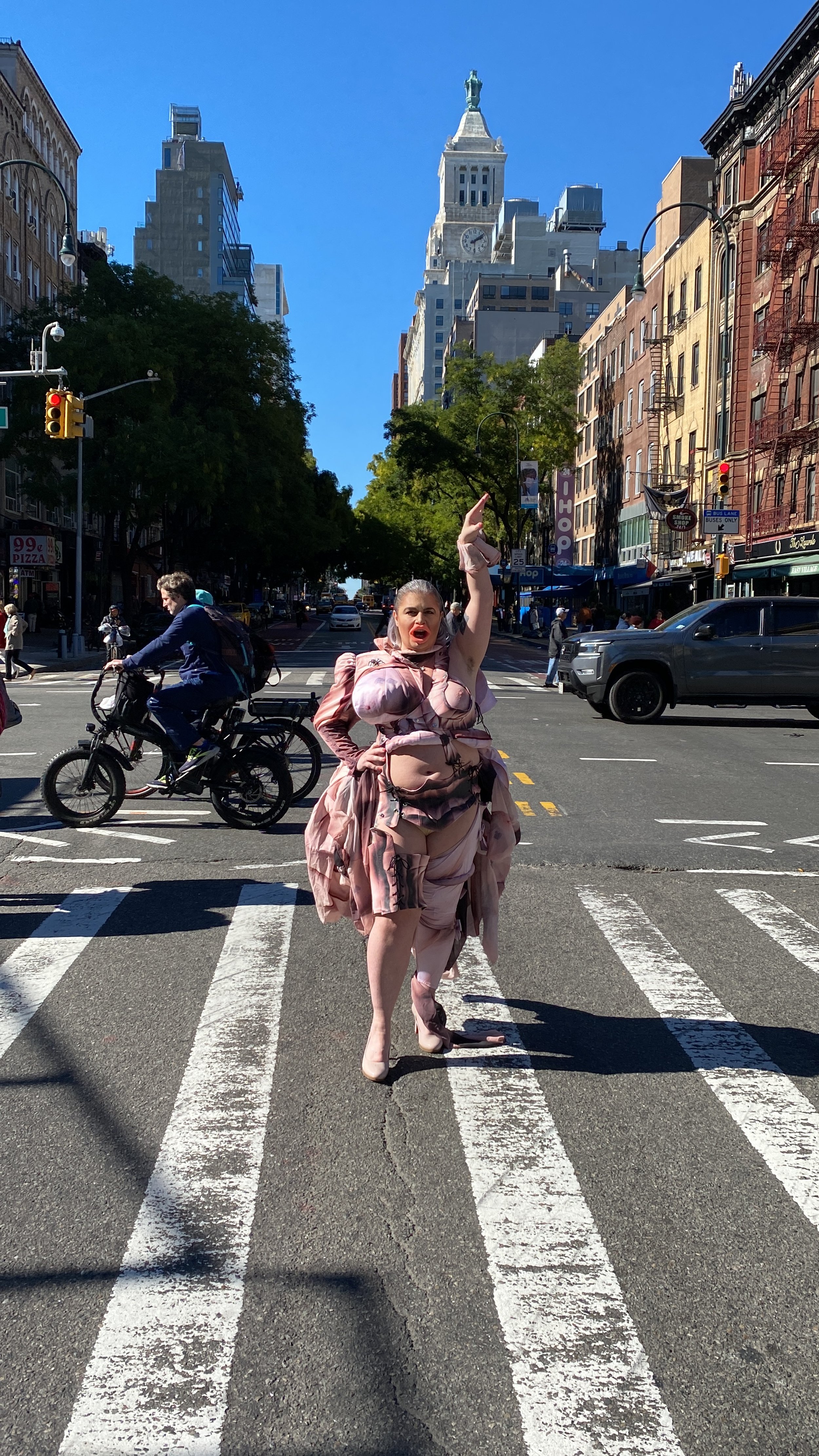“How, in an age that seeks to empower women’s standing, has the female image become honored mainly in its diminution?” (Merkin, 2010: 3)*
Fat. It’s a dirty word, apparently. A word that is almost stage whispered when people say it. I'm fat and I'm OK with it, but when other people allude to my size, they hesitate over the word ‘fat' in an attempt to find a ‘kinder’ euphemism. Why, in Western society is fat considered so obscene?
The F Word, aims to challenge the impossible beauty ideals that are pressed onto women. We are consistently told by fashion and the media that we are not good enough and this has a profound negative effect on self esteem. If we are fat, we have failed: ‘Not only does it defy contemporary beauty standards but it also reads as a failure to perform successfully the daily and incessant work on the body that one is required to undertake in [...] society in order to be a good subject.' (Granata, 2017:153). In a 2014 study by the NHS, it was found that fat shaming was just as harmful on mental and physical health as racism, yet it is still not a subject that is taken as seriously.
With the F Word, I wanted to challenge these narrow body ideals by creating a couture outfit from images of my untamed flesh. By turning myself into a garment it felt like I could talk about body image on several levels: the taming of flesh, the absurdity of 'correct flesh', and our relationship with food. Costumier Nicholas Immaculate worked with me on creating the outfit.
Collaborators: Nicholas Immaculate (costume) and Ant Dickinson (sound).
In 2023, I took The Jame Gumb to New York for the Art in Odd Places Festival. I wore it in 14th Street in Manhattan.
the jame gumb
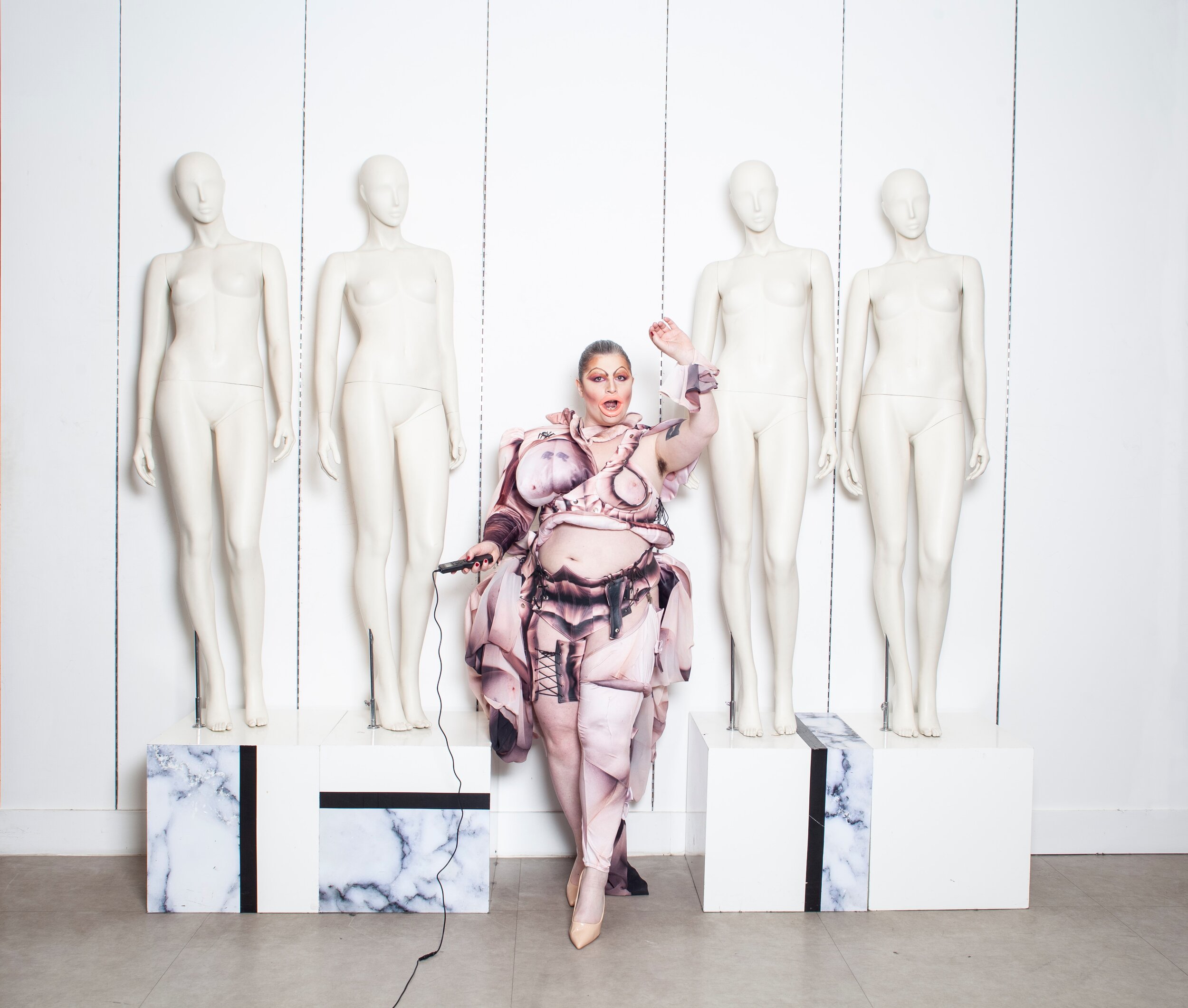
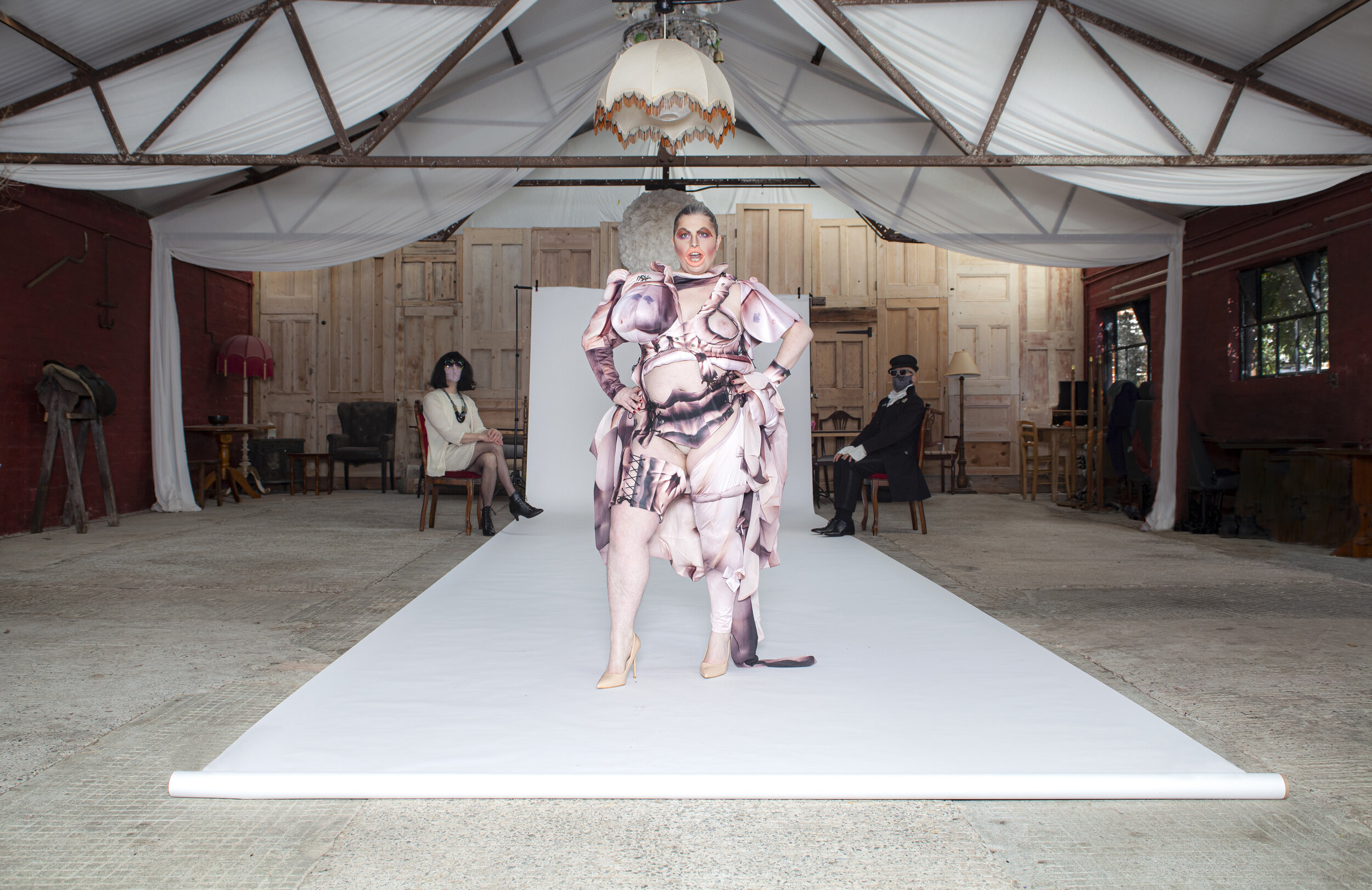
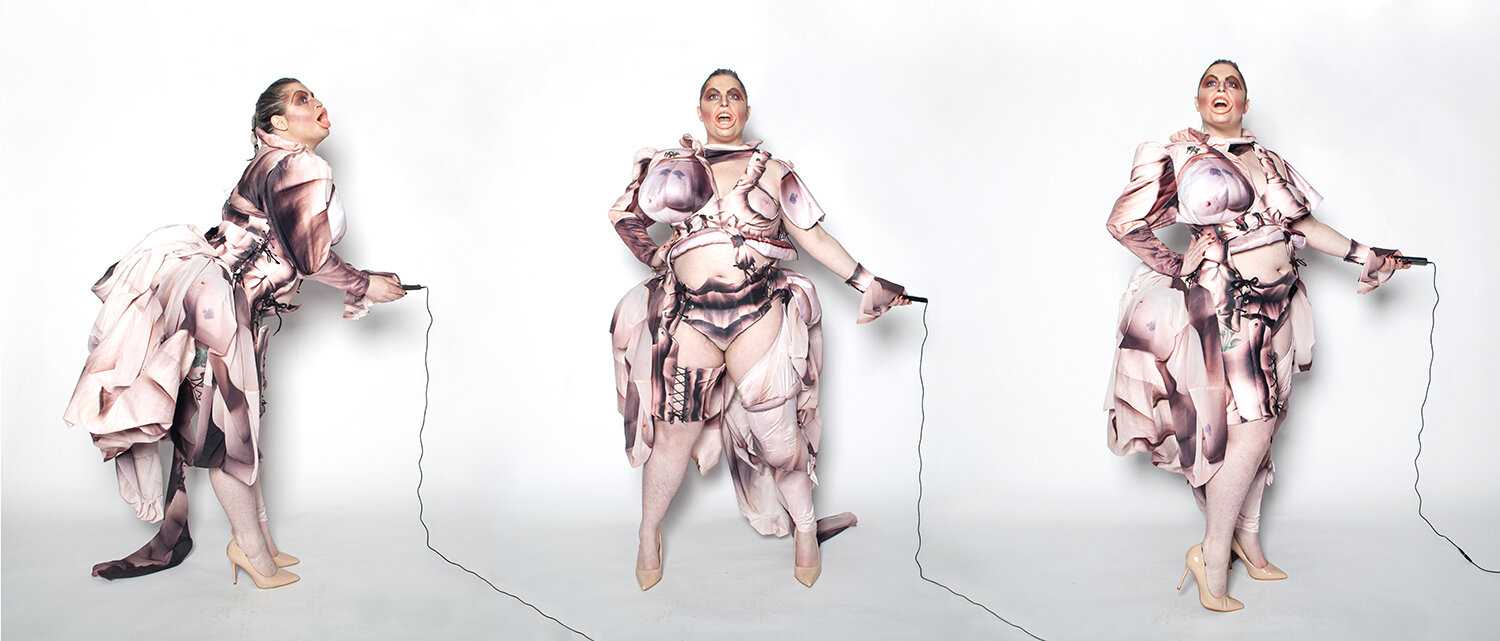
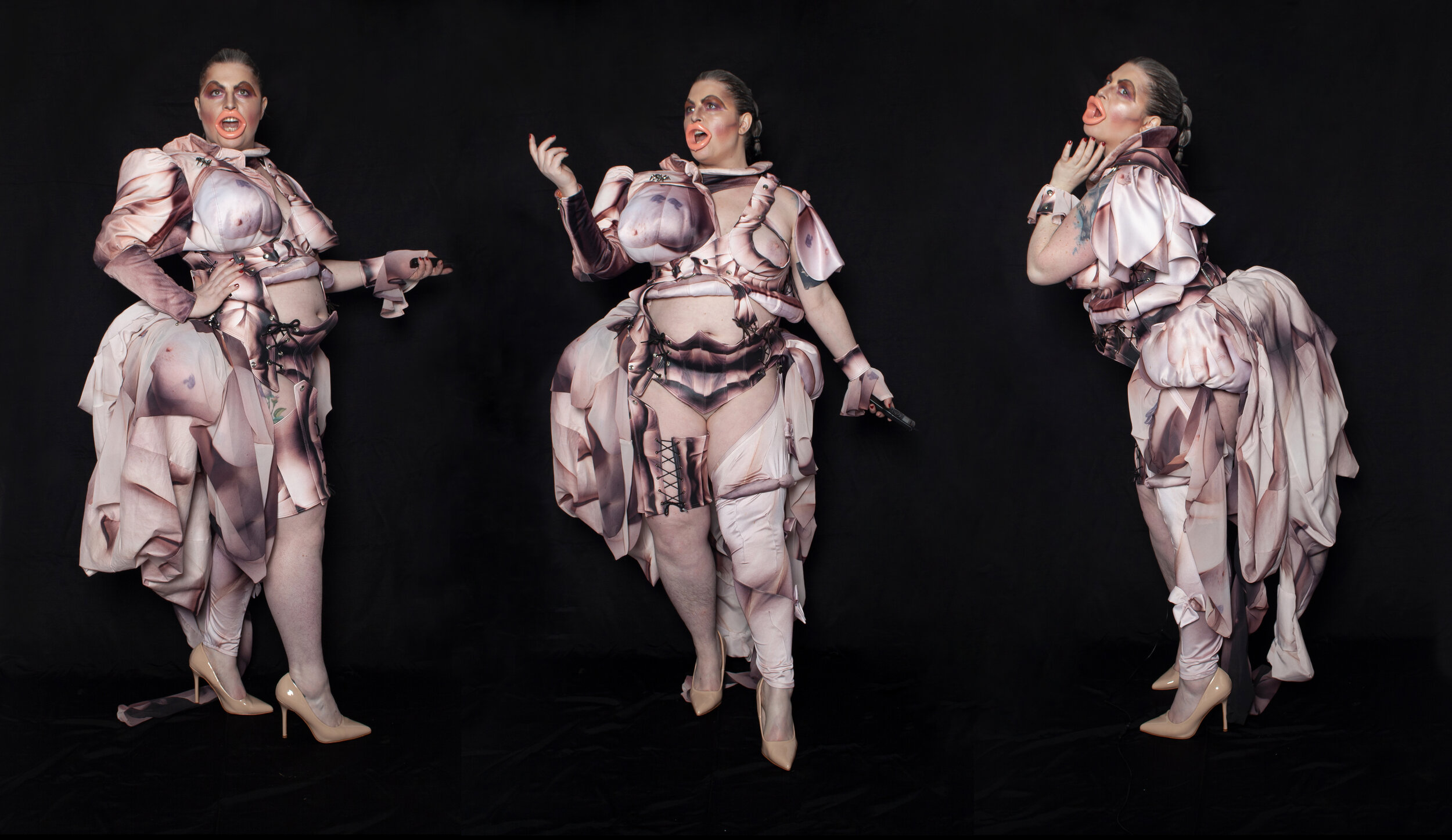
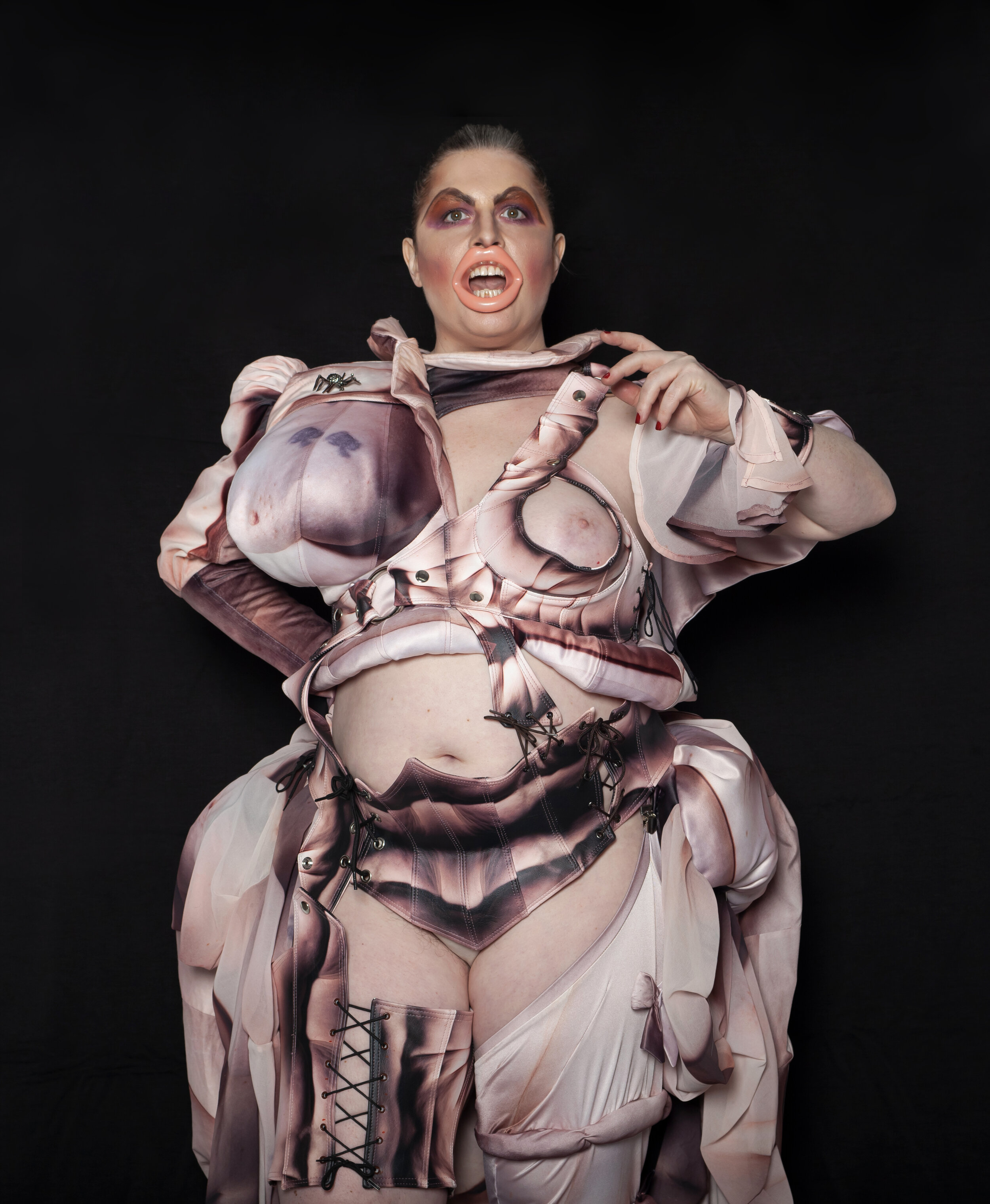
Gorge
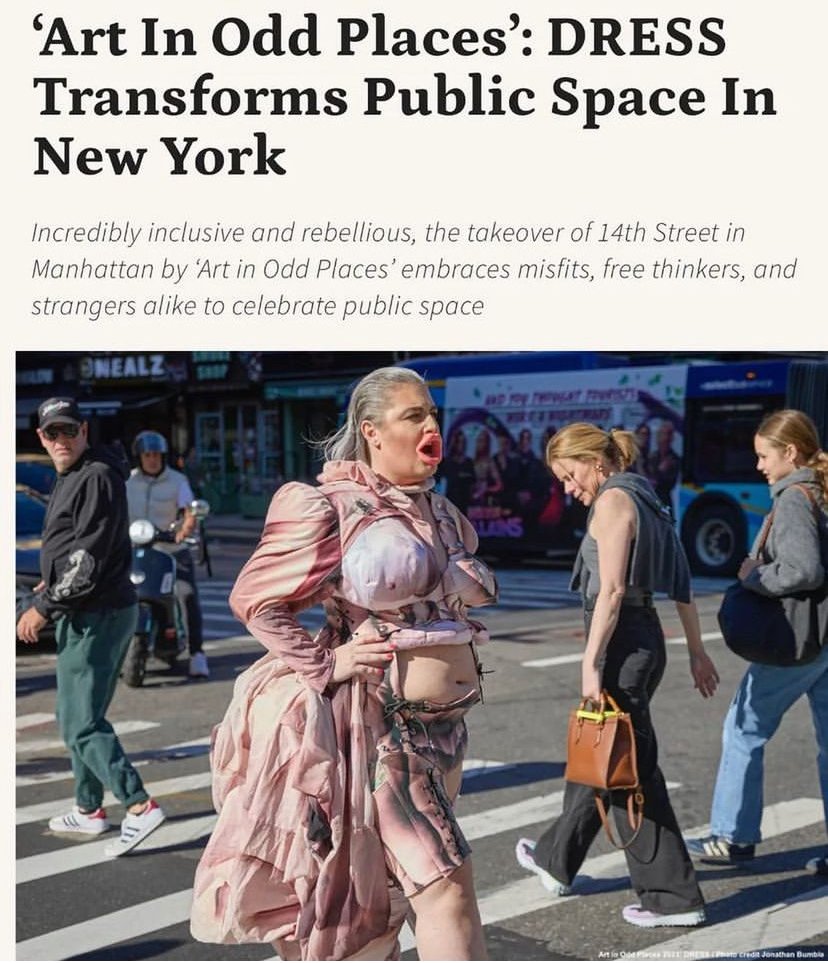
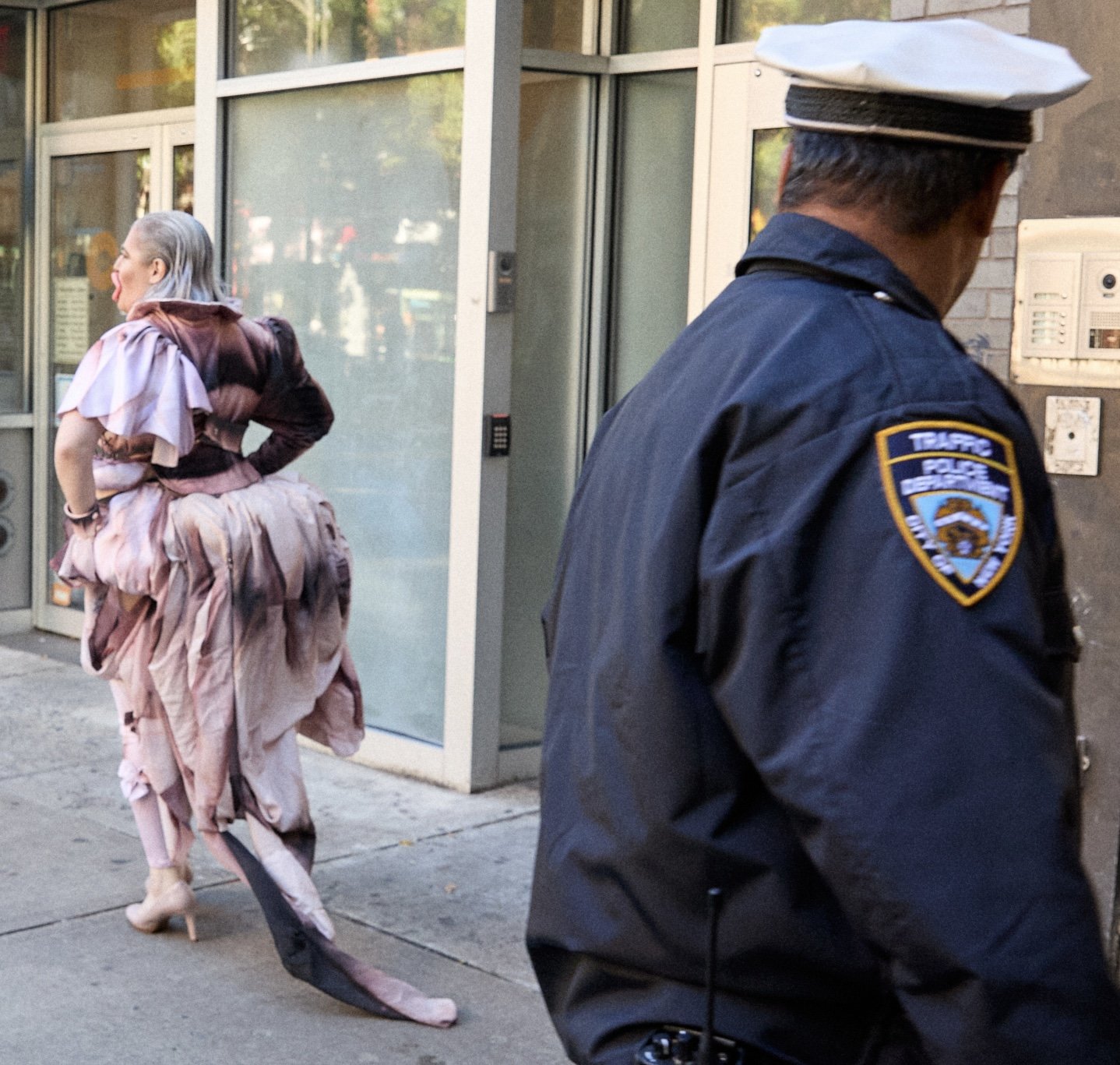
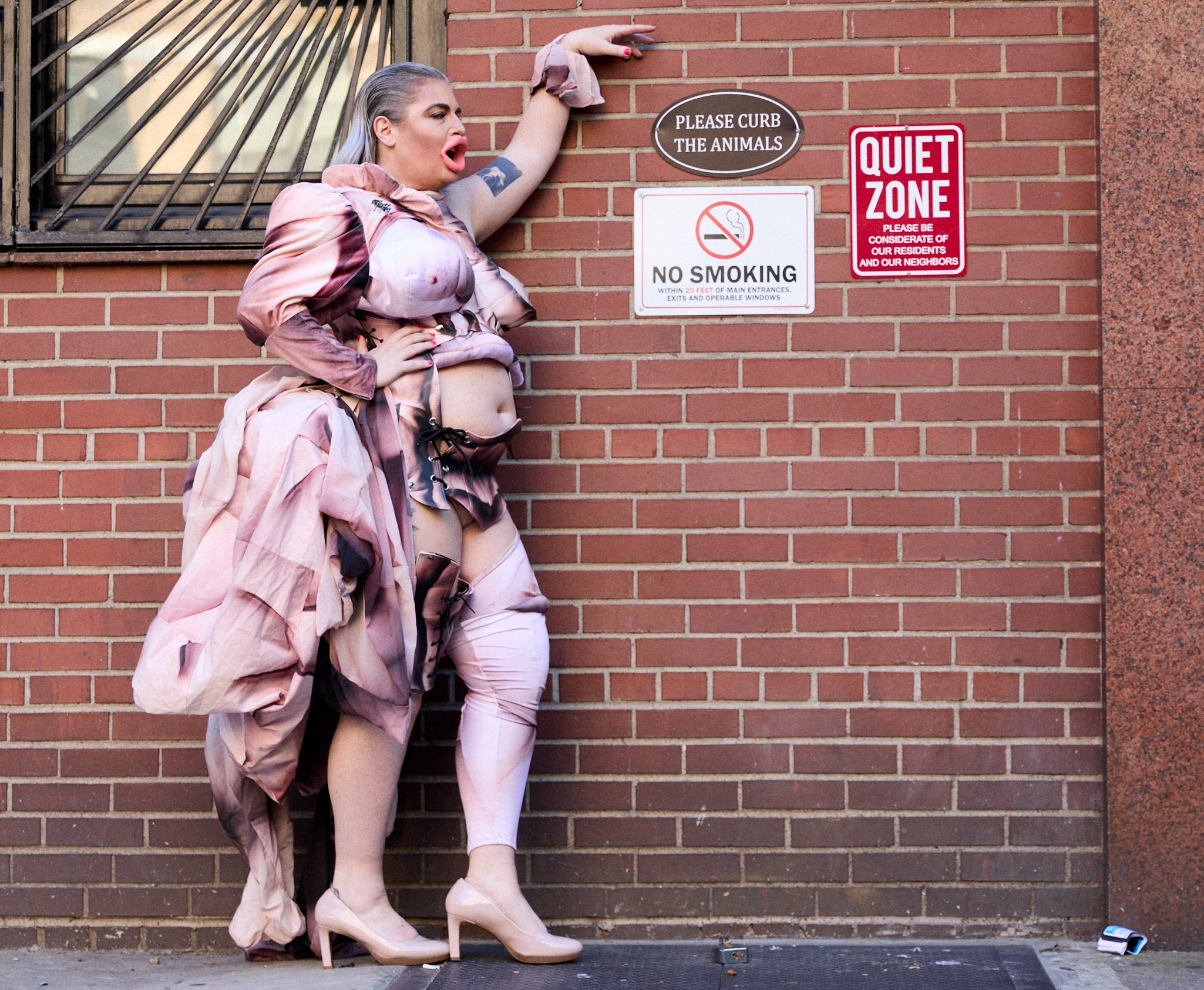
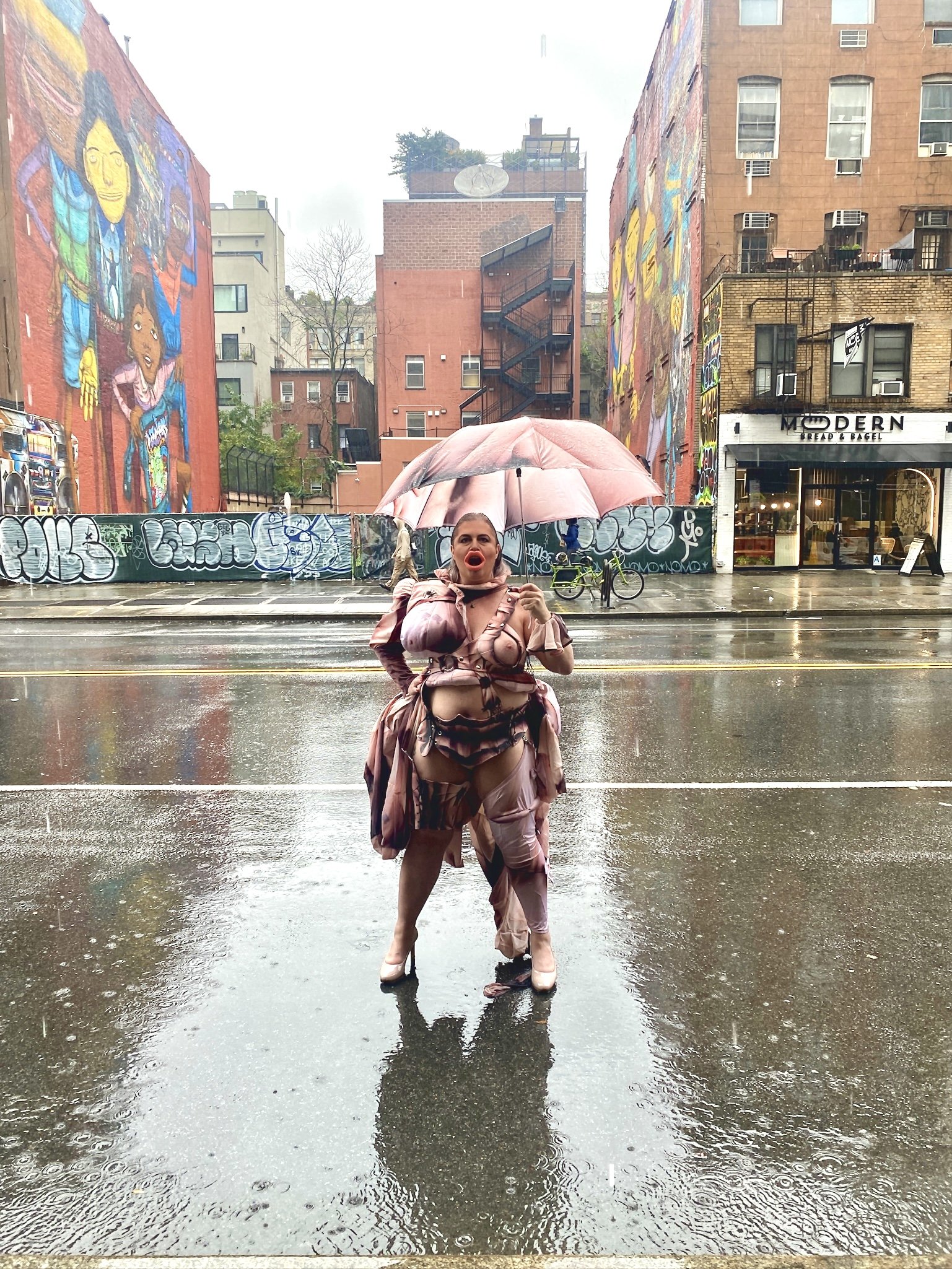
altar
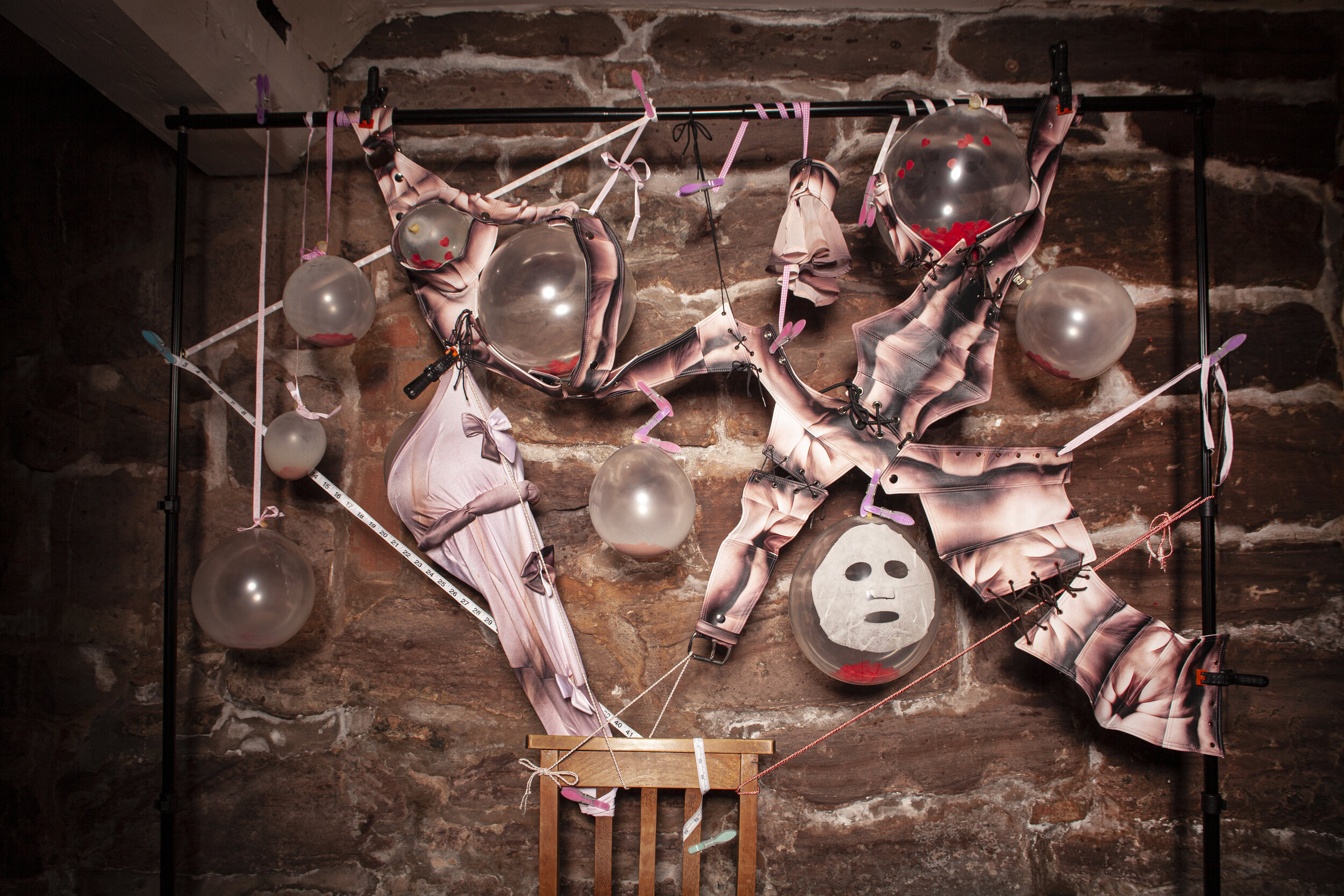
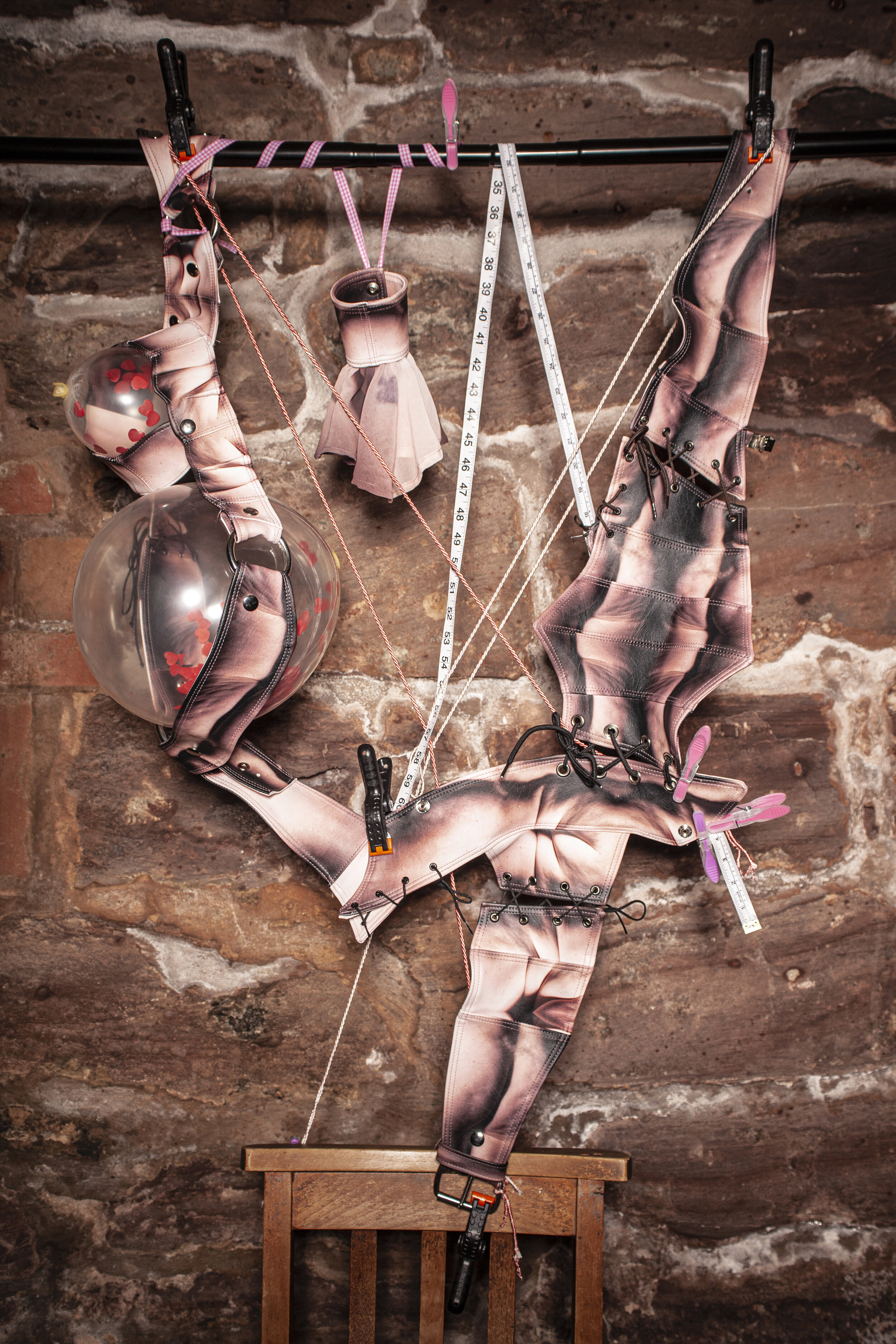
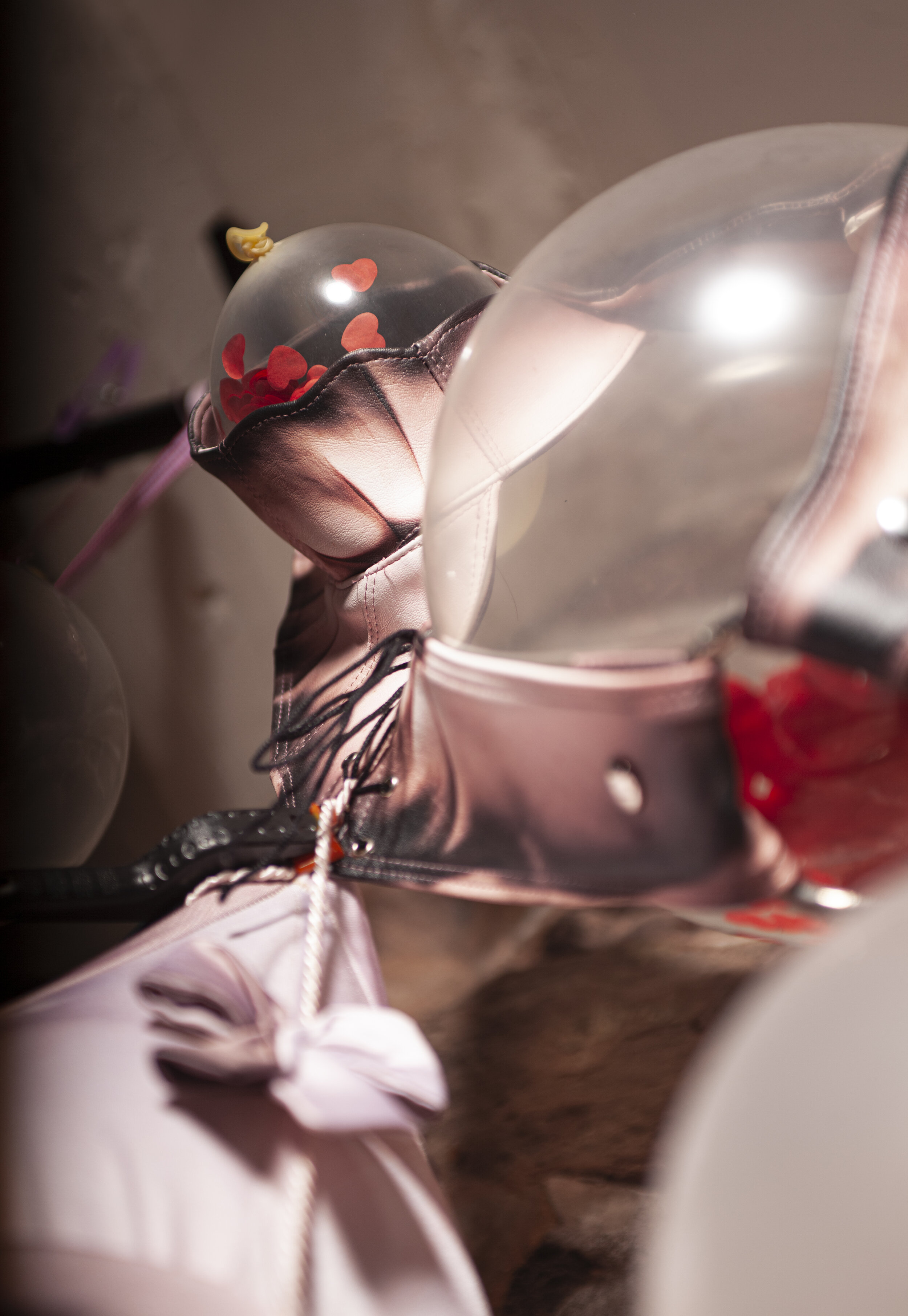

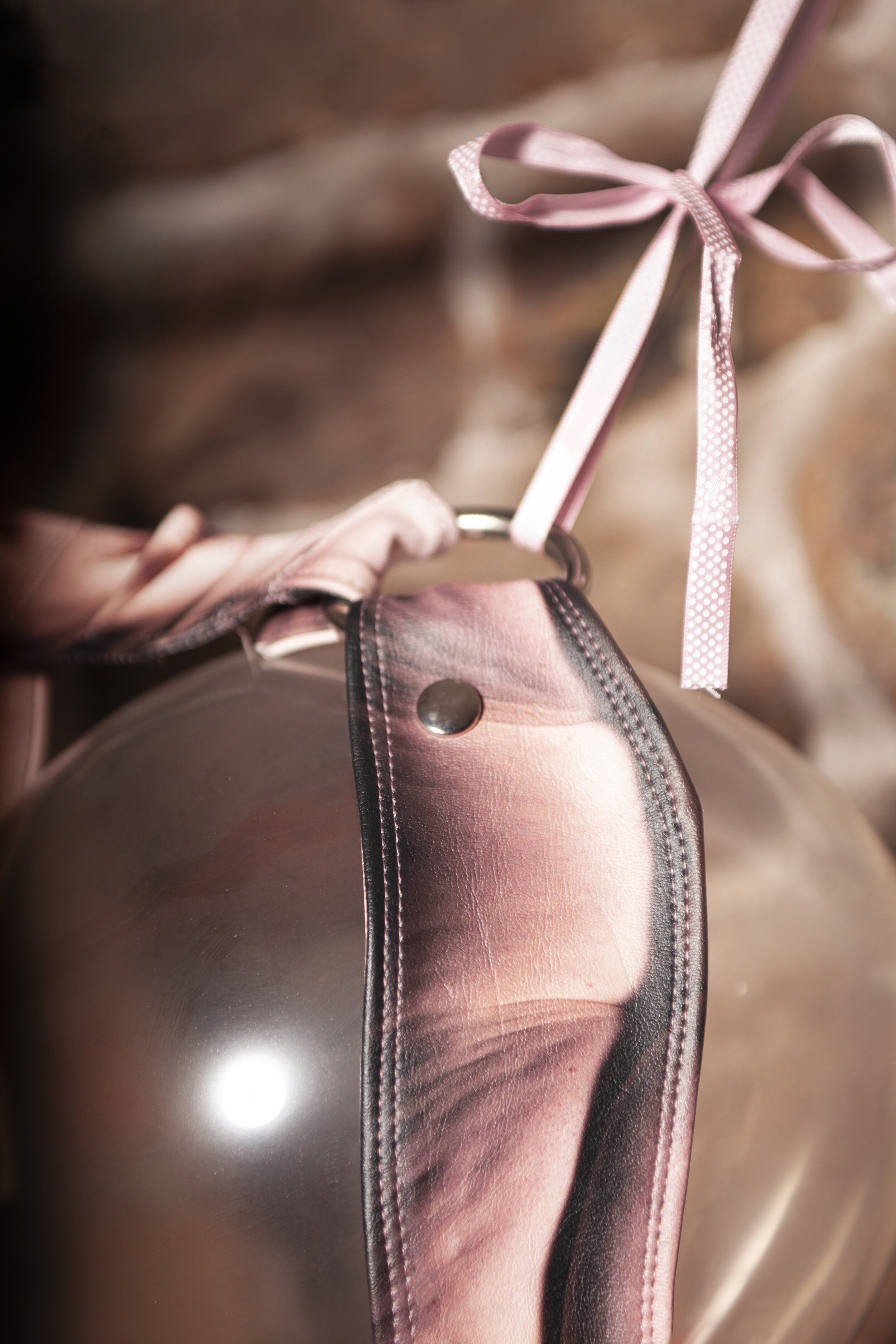

*Daphne Merkin, The F Word, New York Times Style Magazine, 2010: 3
Experimental Fashion, Francesca Granata, 2017:153
NHS Report: https://www.nursingtimes.net/news/behind-the-headlines/fat-shaming-more-damaging-than-racism-17-05-2014/
